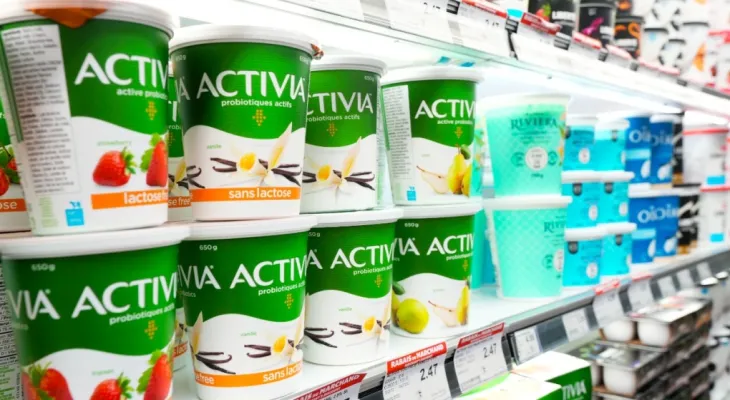Search here
Newspaper
Search here

Arab Canada News
News

Published: July 1, 2022
Canada will require warnings on the front of pre-packaged foods containing high levels of saturated fat, sugar, or sodium starting in 2026 in an attempt to help grocery shoppers make healthy choices at a glance.
The policy, which has been in the works for more than five years, will place clear labels on products called "nutrients of public health concern" linked to conditions such as cardiovascular disease and type 2 diabetes.
Health Minister Jean-Yves Duclos said at a Thursday morning press conference, "These regulations are designed to facilitate informed and healthy choices."
Canada's Health Department said the new labels will complement, rather than replace, the more detailed nutrition information typically found on the back of food packages.
Overall, they will be placed on pre-packaged foods containing more than 15 percent of the recommended daily value of saturated fats, sugars, or sodium.
For pre-packaged meals, warnings will only apply to items containing more than 30 percent of the recommended amount, and for foods sold in increments less than 30 grams, labels will be applied if they contain more than 10 percent of the daily recommendation.
The proposed labels were at the heart of a controversy earlier this month when a group of farm owners opposed the government's plan to include warnings about ground meat.
The Canadian Cattlemen's Association said the policy would "distort" ground beef and make people think it is a less healthy option.
Canada's Health Department excluded single-ingredient meats from warning labels, even if they are high in fat.
The product was considered to have health benefits despite "nutrients of concern" alongside milk, many cheeses, and fruit.
Rejean Schellenberg, president of the Canadian Cattlemen's Association, said in a written agreement that sugar and salt packages will also be exempt, as the government said including labels on these products would be unnecessary.
The plan to place warnings on the front of food packages was first launched as part of the Canadian Health Authority's "Healthy Eating Strategy" in 2016, with consultations continuing into 2018.
But Duclos said the government is giving businesses until 2026 to implement the change to help them manage the cost of packaging reforms and possibly reformulate food so they are not subject to labels at all.
He said this was one of the goals of the program, which was achieved in Chile when that country imposed similar front-of-pack labels.
After a year of implementation, Canada's Health Department said the proportion of products in Chile required to carry the icons had dropped significantly, indicating that companies changed their formulas to reduce sugar, fat, and salt.
The regulation has approval stamps from the Heart and Stroke Foundation and the Canadian Diabetes Association.
Marie Labbe, a professor in the Department of Nutritional Sciences at the University of Toronto and an expert in public health nutrition, said she is also pleased with this policy.
She said a shopper choosing between two types of spaghetti sauce will now be able to know if one is significantly healthier than the other and make a decision accordingly.
She said, "We know that most consumers, in the grocery store, do not spend time comparing, so this policy will really help them make those comparisons easily."
Labbe said research shows that after adding these warnings, people are more likely to choose foods with lower sugar, salt, and fat content.
Comments